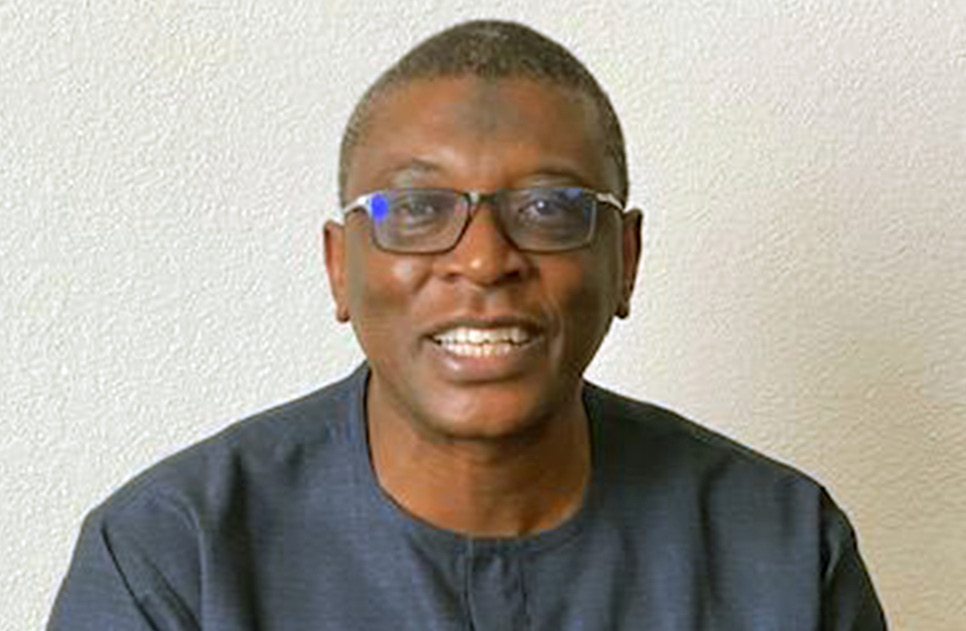By INNOCENT OWEH
Copyright independent

ABUJA – Director General of the West African Institute for Financial and Econom-ic Management (WAIFEM), Dr. Baba Yusuf Musa, has been elected as the 45th President of the Nigerian Economic So-ciety (NES).
Musa, before his election, was the Vice President and Council Member of the NES.
Musa’s emergence as President of NES is one of the high points of the 66th Annual Conference of the Nigerian Economic Society which came to a close in Abuja at the week-end.
He succeeds Professor Adeola Adenikin-ju, who bowed out at the end of his two-year tenure.
The conference, which was declared open by Vice President Kashim Shettima, featured Secretary to the Government of the Federa-tion, Senator George Akume, who chaired the opening ceremony; and Professor James Rob-inson, a joint winner of the 2024 Nobel Prize in Economics and joint author of the book Why Nations Fail: The Origins of Power, Pros-perity, and Poverty as one of the speakers.
Musa is stepping into the position that was once occupied by economic greats like Professor Ojetunji Aboyade, Chief Philip Asiodu, Dr. Pius Okigbo, Prof. Sam Aluko, Dr. Shamsudeen Usman, Alhaji Abubakar Alhaji, Professor Akpan Hogan Ekpo.
The following were also elected into the 2025-2027 NES Council: Prof. Aliyu R. Sanusi (Vice President I), Prof. Emeka Osuji (Vice President II), Dr Victor Akidi (National Sec-retary), Dr Ekesiobi C. Sylvester (Assistant Secretary), Prof. Abiodun Folawewo (Editor), Prof. Evans Osabuohien (Assistant Editor), Prof. Mohammed Yelwa (Assistant Editor), Dr Ekundayo Mesagan (Assistant Editor). Ohers are Dr Idris M. Idris (Business Manager), Dr Oluwafemi Adeboje (Publicity Secretary), Dr Jeremiah Dandaura (Internal Auditor), Prof. Adeola Adenikinju ((Ex- Officio), Prof. Uche Uwaleke (Ex Officio), Prof. Amaka Metu (Ex Officio), Prof. Salamatu Isa (Ex Officio).
Musa, in his acceptance speech, said: “In the coming months, we will embark on col-laborative process to develop a new strategic plan for the Nigerian Economic Society.”
The plan, he stated, will be a collective ef-fort that welcomes the invaluable input of the members, the wisdom of the College of Fellows and Past Presidents, and the dedica-tion of the council members, noting that “this document will serve as our guide, a compass to reposition us, define our future trajectory, and ensure that our actions are deliberate, impactful, and aligned with our shared vi-sion”, pointing out that “this vision will be anchored on four core pillars forming the bedrock of our work”.
He listed the four pillars as: reclaiming our voice: evidence-based advocacy; investing for tomorrow – youth and capacity building; the data revolution – driving research and inno-vation; and a collective endeavour – fostering partnerships and collaboration and complet-ing the NES building.
Throwing more light on the four pillars with regard to ‘evidence-based advocacy’, he said, “We will establish a new Policy Advoca-cy and Engagement Committee that will be the bridge between our members’ research and the corridors of power.”
The committee, he said, will be tasked with quarterly policy briefs, structured dialogue, and state-level impact.
According to him, the state-level impact will involve empowering and supporting state chapters of NES to engage directly with their state governments, providing expertise on state-specific economic challenges and help-ing to develop tailored solutions that can drive growth from the grassroots up.
With regard to youth and capacity build-ing, he said: “We will transform our society into a launchpad for young talent through the following initiatives: The NextGen Econ-omists Programme, National Economic De-bating Championship, and Digital Learning Hub.”
On the data revolution – driving research and innovation, he said he will foster a cul-ture of innovative, rigorous and relevant eco-nomic research through the establishment of a National Economic Data Portal, The Annual Economic Research Grant, and rebooting of The Nigeria Journal of Economic and Social Studies.
Dwelling on a collective endeavour – fos-tering partnerships and collaboration and completing the NES building, he said he will build strong, strategic partnerships that am-plify the impact of NES and extend its reach. This, he said, will be done through engaging the private sector. He explained that “We will work closely with the private sector, lever-aging their expertise and resources to drive innovation and create jobs. Our insights will help businesses make better decisions, and their data will enrich our research.”
Harping on engagement with the media on economic and financial reporting, he said, “Our knowledge must not be confined to academic circles. We must support the gov-ernment to disseminate policies with sound practice. We need to support the government to train the media to report accurately so that the public will be well-informed. We will sim-plify complex economic issues, empower our citizens with knowledge, and build a more economically literate society.”
He, however, said: “Let us work together to ensure that the Nigerian Economic Society is not just a society of economists but a society of builders, of innovators, and of patriots. Let us be the voice of reason in a time of un-certainty. Let us be the source of light in a time of darkness. Let us be the architects of a new Nigeria, built on the foundations of knowledge, integrity, and shared prosperity.”



